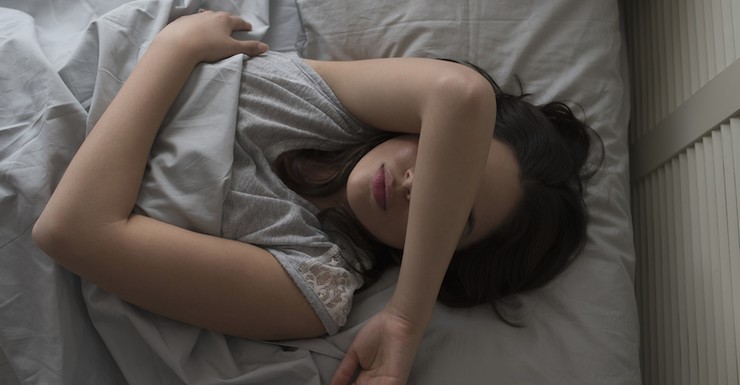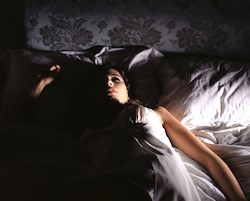
15 May Why you don’t sleep well in different beds
New research reveals we’re not fully asleep during the first night in a new environment.
You’ve finally arrived at your tropical holiday destination and you can hear the waves lapping at the shore. Or you’re interstate for a conference and the boss has put you up in a five-star hotel. But despite the relaxing, luxurious surrounds, you don’t sleep well.
Scientists have long been fascinated with what’s termed the ‘first night effect’ – when we struggle to get sufficient shut eye under a new roof. New research suggests the brain remains partially awake throughout the night to protect us from perceived danger, which reduces the quality of our shut-eye.
Stay safe
 In a landmark study published in Current Biology, researchers at Brown University in the US measured brain activity during sleep and discovered something unusual on night one in a new bed: the left hemisphere of the brain remains more active than the right hemisphere during deep sleep. Ergo, our brains aren’t fully asleep in the unfamiliar environment.
In a landmark study published in Current Biology, researchers at Brown University in the US measured brain activity during sleep and discovered something unusual on night one in a new bed: the left hemisphere of the brain remains more active than the right hemisphere during deep sleep. Ergo, our brains aren’t fully asleep in the unfamiliar environment.
What’s more, when the researchers exposed the left hemisphere to irregular beeping sounds – played, of course, into the right ear as the left side of the brain controls the right side of the body – people were more likely to wake up, and wake more quickly, than if the sounds were played into the opposite ear.
Crucially, the effect vanished on the second night when there were no differences in brain activity between the left and right sides, leading to a restful night’s slumber.
The researchers don’t yet understand why the effect occurs in the left hemisphere, but they suspect the alertness serves to protect us from perceived danger in an unfamiliar bedroom. Once the brain is confident the new environment is safe, we’re able to sleep properly.
Habit and routine
Dr Siobhan Banks, a senior research fellow from the Centre for Sleep Research at the University of South Australia, says the research is consistent with previous findings that demonstrate the brain’s preference for routine.
“If you’re in an unfamiliar place, you stay alert to the things going on around you – strange noises in the house or doors closing if you’re in a hotel,” she says. “We’re creatures of habit and the place that we sleep is one that we’ve become very used to and if we change that, even in small ways, it can disrupt our sleep.”
And the effect may be stronger if you’re especially vulnerable to what’s going on around you, says Professor Dorothy Bruck from the Sleep Health Foundation.
“Some people are much more vigilant about things in their environment, like strange noises, or the things they’re worried about which can keep popping up in the mind, and that anxiety makes you a bit more aroused during the night,” she says.
How to sleep tight
If you sleep regularly in new places the brain may learn to adapt to unfamiliar beds, but if you travel infrequently for work or want to get the most out of your holidays there are some strategies that may help you to sleep better on night one.
 “It’s about making yourself feel as safe as possible,” says Dr Banks.
“It’s about making yourself feel as safe as possible,” says Dr Banks.
“If you’re in a hotel, deal with whatever is making you feel the most vulnerable. Some people like to know where the fire exit is, some people need to check they’ve locked the door and others like to make sure they have adequate bed covers.”
Prof Bruck suggests hitting the sack and getting up at the same time as you would in your own bed. This helps the body retain a strong sleep-wake cycle, which aids good quality sleep. And, importantly, if you’re struggling to nod off she says the mini-bar is best avoided.
“We know that alcohol makes you sleep more poorly, especially in the second half of the night – it really fragments your sleep,” says Prof Bruck.
Story Source:
ANGELA TUFVESSON http://thenewdaily.com.au/life/2016/05/07/sleeping-in-different-beds/

